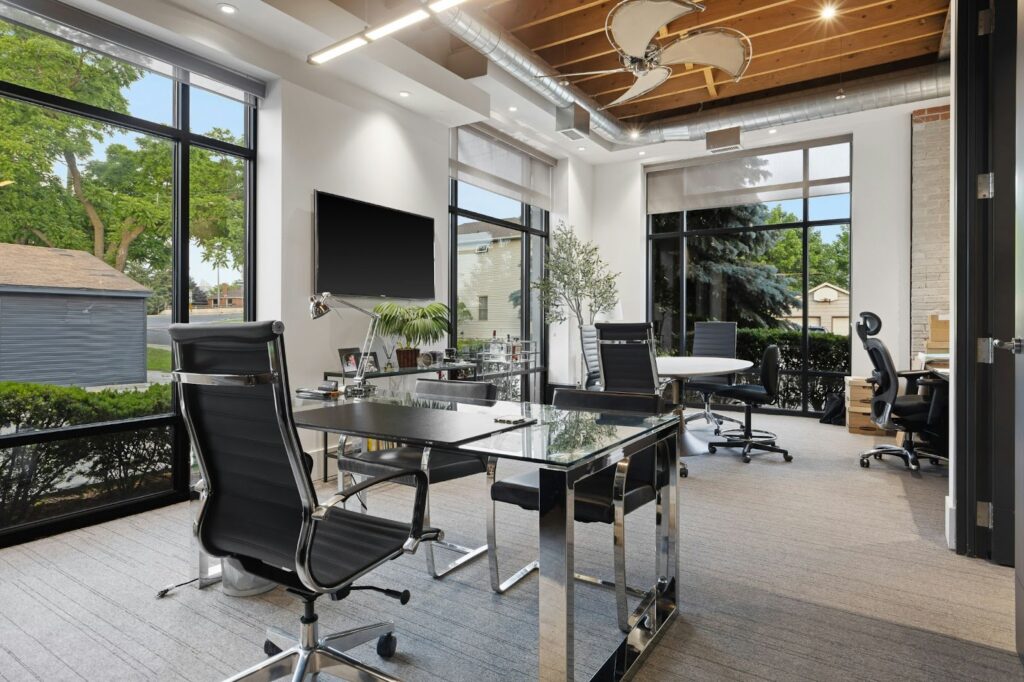
When you’re ready to take your business to the next level with a physical location, it’s tempting to focus on the exciting aspects like location and curb appeal.
However, experienced business owners know that what lies beneath the surface can make or break your success. Before you rent property from a commercial real estate agent, here are five critical deal-breakers you need to thoroughly investigate.
- Structural Integrity and Building Systems
The foundation of your business success starts with, well, the actual foundation. A building might look perfect on the surface, but structural issues can drain your finances and knee-cap your business before it even has a chance to flourish.
Pay special attention to the roof condition and any history of leaks, as well as HVAC systems and their maintenance records.
You should also look out for electrical capacity and recent upgrades, any potential issues with plumbing systems, and check for foundation integrity and any signs of settling.
2. Accessibility and Parking
Your perfect location becomes worthless if customers can’t easily access it or find parking. Consider the number of dedicated parking spaces available and compare this against your expected peak traffic periods.
You also want to ensure that handicap accessibility compliance is fully met and verify if you’ll need loading dock access for your operations. Consider the proximity to public transportation as well, as this can significantly impact both customer and employee access.
Traffic patterns throughout different times of the day can also dramatically affect your business operations. So don’t just check during one visit — observe the property during your busiest expected operating hours to get a true picture of accessibility.
3. Zoning and Permit Requirements
Many business owners have had their dreams crushed by overlooking zoning restrictions. Ideally, your intended use should align with local regulations, as changing these can be time-consuming or impossible.
Make sure to research current zoning classification and permitted uses, any overlay districts that might affect your business, and special permit requirements for your industry.
Remember, just because a similar business operated there before doesn’t automatically mean your business will be approved, so do your due diligence.
- Hidden Costs and Operating Expenses
The monthly rent is just the beginning of your financial commitment, and common area maintenance (CAM) charges often surprise new tenants with their scope and size.
Property tax pass-throughs can also increase your monthly expenses, while utilities costs vary greatly depending on whether they’re separately metered.
Insurance requirements and maintenance responsibilities also need careful consideration, as these can substantially impact your bottom line.
- Lease Terms and Flexibility
Because your business needs may change dramatically over time, your lease should have room for growth or downsizing.
Subletting and assignment rights offer important flexibility if your situation changes, while exclusivity clauses can protect your business from direct competition within the same property.
Look out for early termination options, too, which offer valuable escape routes if needed. And pay particular attention to how operating expenses are calculated and passed through to tenants.
Some landlords might try to pass through capital improvements that should be their responsibility, so it’s essential to clarify these terms before signing.
The Right Property is Out There
After checking these five critical areas, you’ll be in a much better position to make an informed decision. While no property is perfect, major issues in any of these areas should make you pause and carefully reconsider.
Create a detailed checklist incorporating all these elements and score each potential property objectively. This helps remove emotional decision-making from the process and ensures you’re comparing properties fairly.
Most importantly, don’t rush the process. A hasty decision to sign a lease can haunt your business for years to come. Take your time, do your due diligence, and be willing to walk away if the property doesn’t meet your requirements.
- 1share
- Facebook0
- Pinterest1
- Twitter0
- Reddit0



